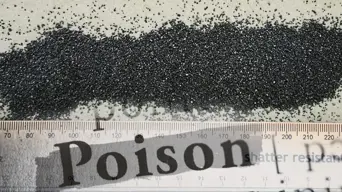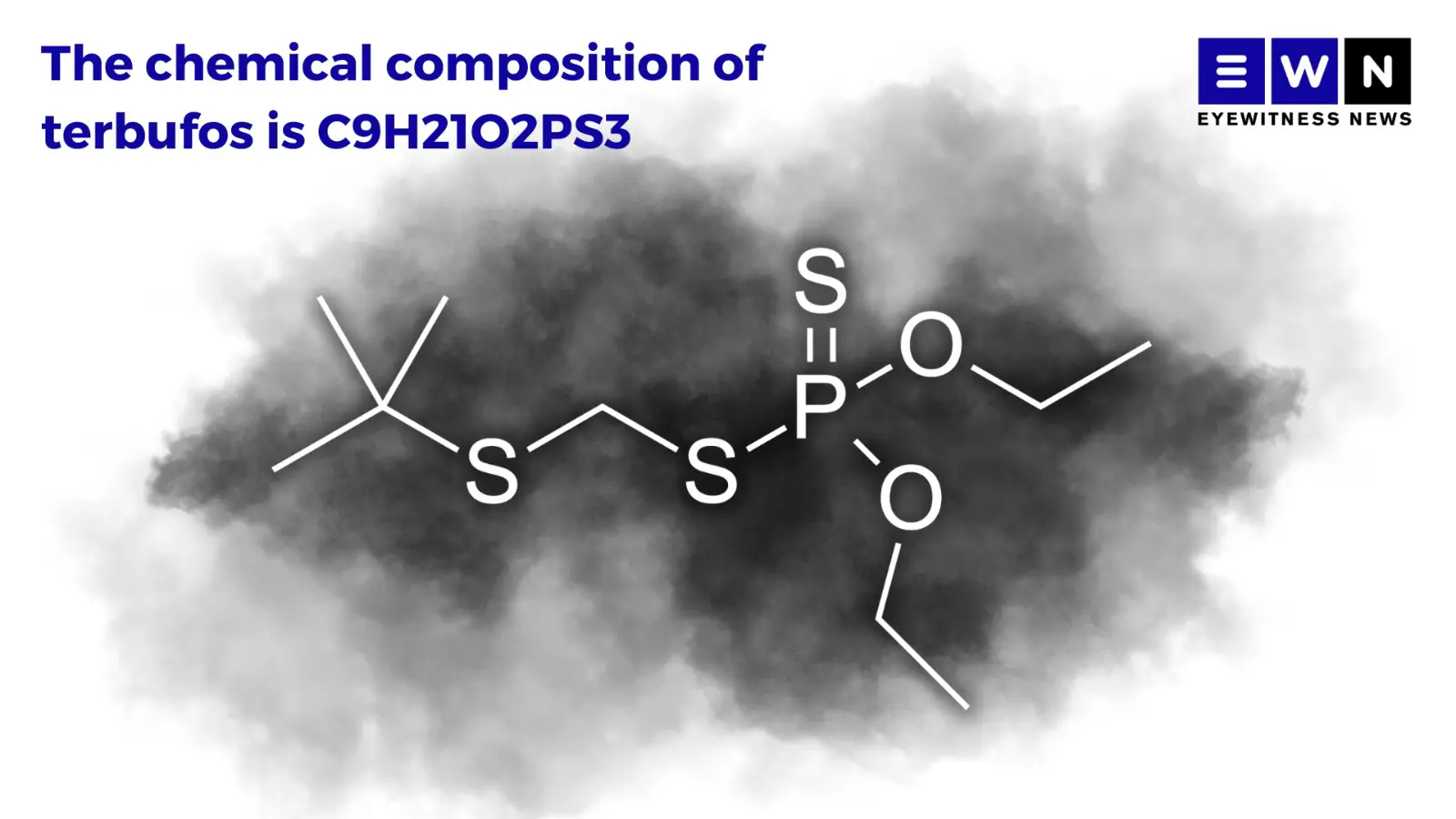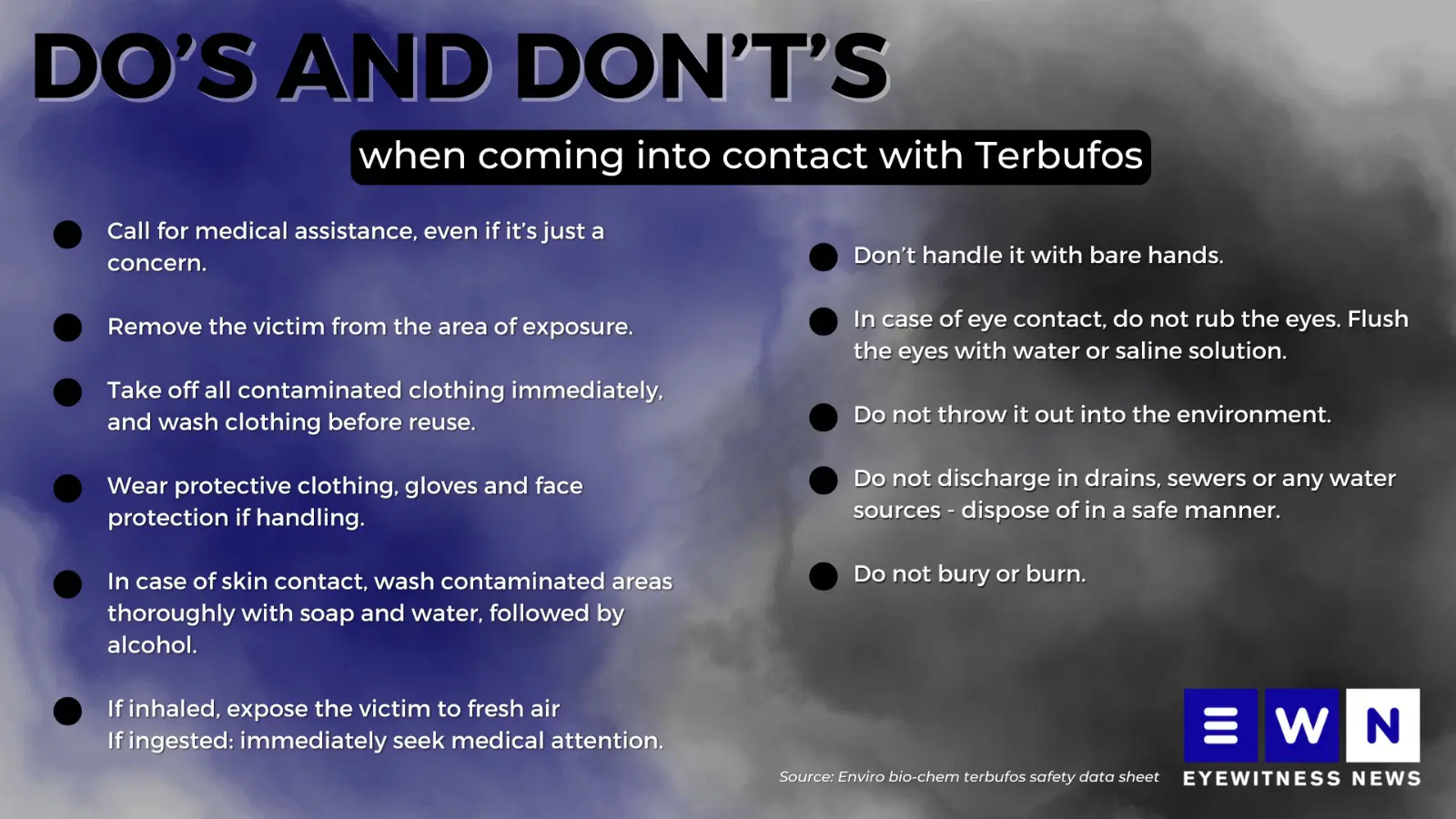EXPLAINED: 'The intention is to kill' - what we know so far about terbufos
An organophosphate's intention is to harm. It is an agro chemical made to kill pests plaguing maize, potato, bean and peanut crops, among others.

Picture: Supplied to EWN
JOHANNESBURG - Designed to kill. That's how one expert has described the pesticide found in the bodies of six children who died in Naledi, Soweto last month.
Organophosphate has no place in the intestines of a young child, and yet, South Africa is gripped by an often deadly spate of poisonings, the latest of which was confirmed by Minister of Health Aaron Motsoaledi to be the cause by this agricultural poison - more specifically, an active ingredient called terbufos.
An organophosphate's intention is to harm. It is an agro chemical made to kill pests plaguing maize, potato, bean and peanut crops, among others.

Graphic: Abigail Javier/Eyewitness News
Environmental NGO groundWork epidemiologist and toxicologist, Rico Euripidou, explained to EWN that terbufos contains neurotoxic chemicals that impact the way your neurological system normally works.
In the case of the six children who tragically passed in Naledi early in October, the haemoglobin in their blood was unable to carry oxygen after terbufos was ingested. Instead, carbon dioxide was carried, displacing oxygen, and ultimately leading to their deaths, Euripidou said.
And unfortunately, Euripidou says the incident is not new.
"People are living in squalor. Waste and rubbish accumulate, and municipalities are failing with waste management. The use of chemicals for pest control has been going on for as long as we've had townships. And as long as they're available, they will find their way where there is demand."
FARM TO TABLE?
Investigations into how terbufos went from only being allowed to be used by trained, certified and registered pest control operators to the streets of Soweto are ongoing.
The Department of Agriculture, Land Reform and Rural Development (DALRRD) emphasised in EWN's query that terbufos "must not be used for domestic use".
However, it is a vicious cycle - people use terbufos and other highly hazardous pesticides (HHP) to curb rats and other pests, which are attracted to piles of uncollected rubbish.
Whether granular, liquid or pellets, it is disturbingly easy for a person to accidentally poison themselves or others. Fatal if swallowed or if it comes into contact with skin, toxic to aquatic life, with long-lasting effects, and even suspected of causing cancer, terbufos is categorised as a level 1A HHP by the World Health Organization.

Graphic: Abigail Javier/Eyewitness News
CALLS FOR WORLDWIDE BAN
NGO UnPoison SA network coordinator Anna Shevel told EWN there have been concerted calls for a worldwide ban for some time and safer pest control alternatives.
"There has been no case anywhere in the world of a pesticide being banned, and that ban affecting an agricultural economy. Alternatives are always found. South Africa has a tremendous opportunity to develop biological solutions and methods that can replace the demand for deadly chemicals in our food, agricultural and urban environments.
"Developing our own independent local manufacturing industry of biological solutions would grow our local agricultural economy tremendously, and benefit our exports," Shevel said.
The DALRRD does have plans to use alternative products or techniques but said assessments first had to take place before HHPs are banned.
This, however, will likely only begin to manifest in 2035, 11 years from now.
"In line with the international commitment, South Africa is working towards the phasing out of highly hazardous pesticides where the risks have not been managed and where safer and affordable alternatives are available by 2035."
Euripidou has emphasised that South Africans must continue to "demand better of our government", specifically better services, such as integrated solutions to zero waste, and separation at source.
"We have the right to demand that of our government. We don't need toxic chemicals."